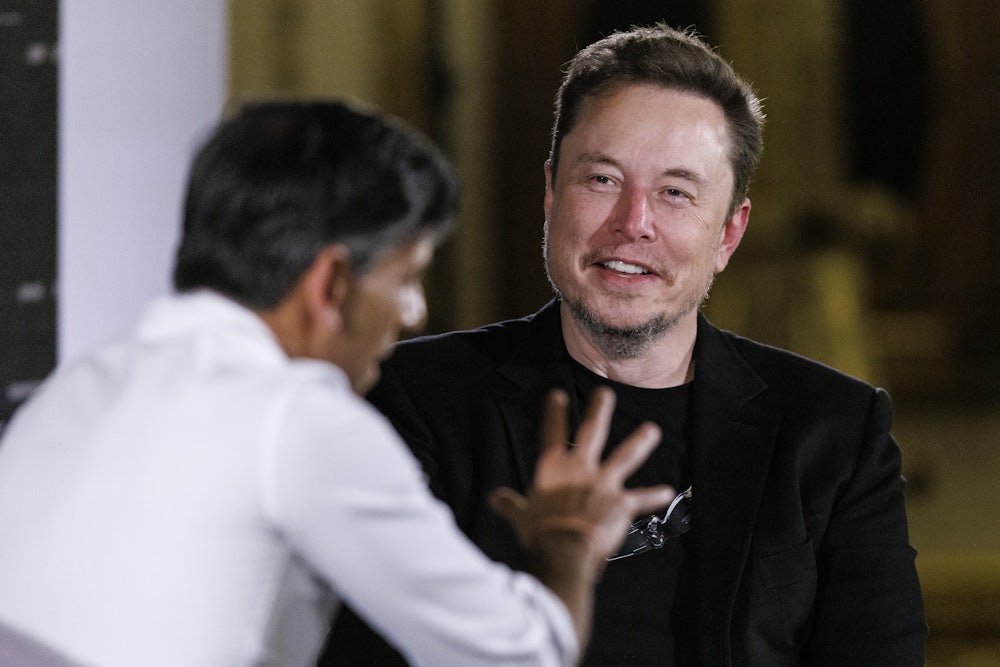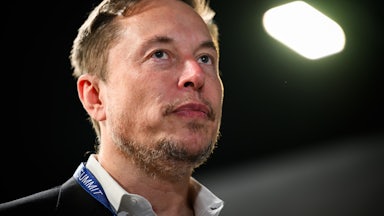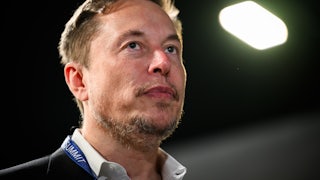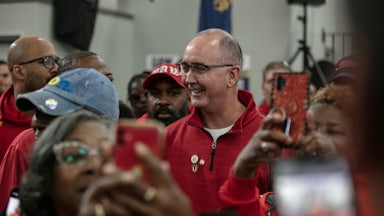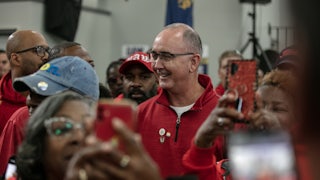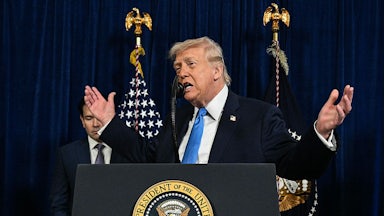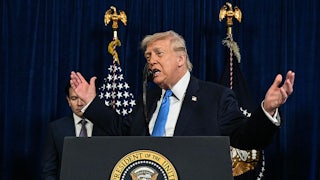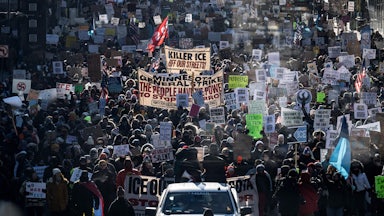Elon Musk’s business empire has been built with government money. His spacecraft manufacturing and launching company, SpaceX, exists largely as a conduit for government contracts, having inked $15.3 billion worth of them since 2003, with another $1.2 billion reportedly in the works. Tesla, meanwhile, received a critical $465 million loan guarantee via the American Recovery and Reinvestment Act in 2010. The company has also dropped the price of its cars, very likely so that they can qualify for the tax breaks offered by the Inflation Reduction Act. Its extensive charging network—dominating the market in this country—will benefit from both the Bipartisan Infrastructure Act and the state-backed expansion of electric vehicles. And, like any other business, Tesla also depends on the public sector in more quotidian ways: the roads planned and paved by the government, for instance.
This week, Tesla finally admitted just how critical government services and workers are to its operations. It did so by suing the government of Sweden.
On Monday, Tesla’s Swedish subsidiary sued the country’s Transport Agency over the postal workers’ union’s refusal to deliver mail—including license plates—to Tesla facilities. Postal workers’ Tesla boycott is part of a solidarity action with Tesla mechanics in Sweden who’ve opted to join the metalworkers’ union, IF Metall. Tesla mechanics who’ve joined IF Metall began striking last month over the company’s long-standing refusal to negotiate the kind of collective bargaining agreement standard for companies that do business there. Sectoral standards for wages, time off, and pensions in Sweden are largely brokered through such agreements, which cover some 90 percent of workers.
Tesla has just about 130 employees in Sweden and does not produce cars there. Yet a growing number of unions have joined the effort to uphold the country’s muscular, hard-fought labor market norms against the U.S. manufacturer’s attempts to evade them. Many fear Tesla, if unchallenged, could set a worrying precedent for foreign firms similarly looking to skirt labor norms. Dockworkers, therefore, have refused to unload Teslas at Swedish ports. Painters have refused to paint Teslas at 53 car-painting companies throughout the country. Unionized employees of the Norwegian company Hydro’s Swedish subsidiary, which has a plant in Southern Sweden, have stopped making parts for Tesla products. On November 20, the postal workers joined in.
Tesla argues that Sweden’s Transport Agency—which makes license plates—has “a constitutional obligation to provide license plates to vehicle owners.” The government, according to Tesla, should allow Tesla to access the plates despite PostNord employees’ refusal to deliver them. The transport agency in turn argued that the plates could only be delivered via PostNord. On Monday, a district court in Norrköping sided with the company, issuing a temporary injunction to require that the agency find another means of getting the plates to Tesla within seven days while the case is being considered. A district court in Solda said on Tuesday that it will take up a separate case filed by Tesla against the postal service. While the court ordered PostNord to respond to Tesla within two weeks, it has denied Tesla’s request to immediately obtain license plates already in PostNord’s possession.
Elon Musk would like to have his cake and eat it too: To benefit from state largesse and ignore how those states tend to operate. In the U.S., he’s more or less gotten a free pass to do that: While the White House has condemned Musk’s embrace of antisemitic conspiracy theories, SpaceX still receives lucrative defense contracts. Tesla has taken for granted the ability to find cheap, nonunion workers to build its cars. Swedish unions likely won’t be the last ones to challenge that: German workers at Tesla’s Gigafactory outside Berlin have been joining IG Metall, the powerful union representing that country’s auto sector. (IG Metall and IF Metall are separate unions.) In the U.S, the United Auto Workers has set its sights on Tesla plants on the heels of its successful strike against the Big Three traditional automakers. So-called “secondary strikes” of the sort happening in Sweden now are illegal in the U.S. At home and abroad, though, Elon Musk is learning that he can’t keep taking the work that keeps his companies going for granted.
